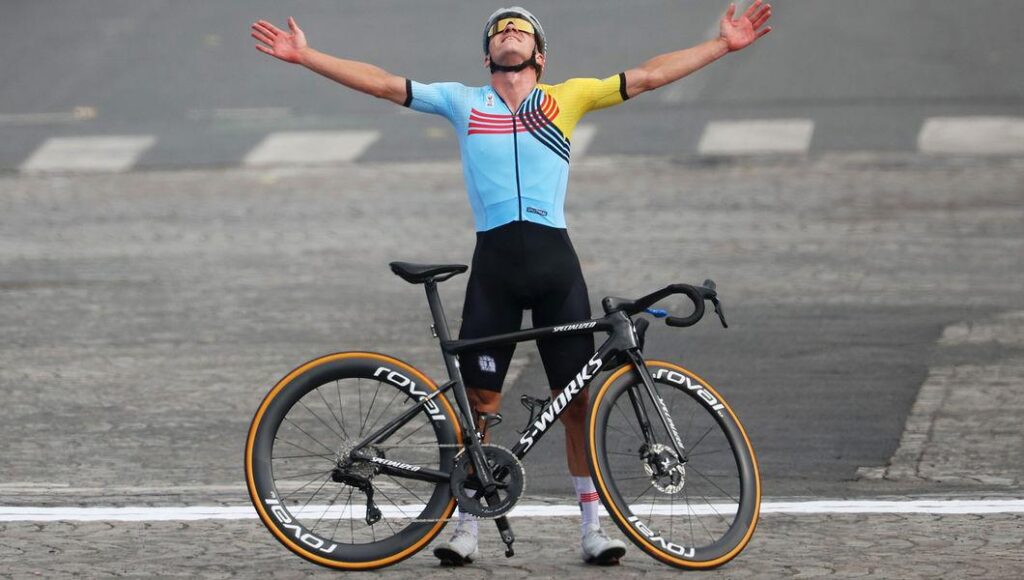In a significant development within professional cycling, Soudal-QuickStep CEO Patrick Lefevere has revealed that the team reached a financial settlement enabling star rider Remco Evenepoel to break his contract early. Emphasizing the desire to avoid legal disputes, Lefevere noted that the agreement was reached amicably and reflects a “fair amount” in compensation. This move marks a pivotal moment for both the team and the reigning world champion, as Evenepoel looks to pursue new opportunities in his career. As the cycling world watches closely, this decision raises questions about the implications for team dynamics and the evolving landscape of contracts in the sport.
Soudal-QuickStep’s Decision to Settle Highlights Changing Dynamics in Contractual Agreements
In a move that underscores the evolving landscape of cycling team management, Soudal-QuickStep opted for a settlement rather than a prolonged legal confrontation regarding Remco Evenepoel’s contract. The team’s CEO revealed that the decision stemmed from a desire to avoid the complexities and uncertainties of court battles, which can often lead to prolonged public disputes and impact team morale. Instead, the management reached a mutual agreement that not only provided a “fair amount” for the early termination of Evenepoel’s contract but also laid the groundwork for a smoother transition in team dynamics.
The implications of this agreement reflect broader changes in how professional cycling contracts are approached, particularly as athletes seek greater flexibility in their careers. Key factors contributing to this trend include:
- Increased athlete autonomy: Riders are gaining more leverage in negotiations.
- Fostering positive relationships: Teams and athletes are prioritizing collaboration over litigation.
- Financial considerations: Settlements can be financially strategic for both parties involved.
This decision not only impacts the athletes and team dynamics but also signals a shift in industry norms as teams aim to navigate the complexities of contract negotiations with a more amicable approach. The future of cycling contracts may increasingly prioritize mutual benefits over contentious disputes.
Remco Evenepoel’s Early Departure: A Strategic Move for Team and Athlete Alike
In a surprising turn of events, the decision for Remco Evenepoel to depart early from Soudal-QuickStep has been framed as a *strategic maneuver* benefiting both the athlete and the team. According to CEO Patrick Lefevere, the organization received a “fair amount” in compensation which facilitated the smooth transition away from a contract that was becoming increasingly untenable. This move is being viewed not only as a way to avoid potential legal disputes but also as a proactive step in repositioning their focus ahead of the upcoming cycling season. By prioritizing a harmonious exit, Soudal-QuickStep aims to retain its competitive edge while allowing Evenepoel to pursue new opportunities that align with his ambitions.
Such transitions typically involve extensive negotiations, reflecting the changing landscape of professional cycling. Breaking down the implications of this early contract termination highlights several key factors:
- Financial Considerations: The agreed payout minimizes disruption for both parties.
- Team Dynamics: Soudal-QuickStep can reallocate resources and focus on their remaining riders.
- Future Prospects: Evenepoel opens the door for potentially lucrative contracts with other teams.
| Athlete | Previous Team | New Opportunities |
|---|---|---|
| Remco Evenepoel | Soudal-QuickStep | Potential Top Teams |
| Other Riders | Soudal-QuickStep | Focus on Championships |
CEO Insights: Navigating Negotiations to Avoid Legal Battles and Foster Team Unity
In a recent statement, the CEO of Soudal-QuickStep shed light on the complexities involved in contract negotiations, particularly regarding the early release of Remco Evenepoel. With a focus on fostering collaboration rather than confrontation, the team strategically approached the situation to minimize potential legal disputes. According to the CEO, the agreement was reached after recognizing the benefits of a civilized negotiation process. He emphasized that they were able to secure a fair amount, showcasing the importance of mutual understanding over adversarial tactics. The aim was clear: maintain team unity while respecting the athlete’s aspirations.
This approach reflects a broader trend in the sports industry, where organizations are increasingly prioritizing amicable resolutions. Key factors in successful negotiations include:
- Open Communication: Maintaining transparency between parties fosters trust.
- Focused Objectives: Aligning on shared goals helps prevent misunderstandings.
- Flexibility: Being willing to adjust terms can lead to mutually beneficial outcomes.
By emphasizing these principles, the Soudal-QuickStep management believes they can avoid the pitfalls of litigation, which not only drains resources but can also hinder team cohesion. The CEO concluded that by valuing human relationships and prioritizing dialogue, they could create a positive environment conducive to success on and off the field.
The Conclusion
In conclusion, the negotiations surrounding Remco Evenepoel’s early exit from his contract with Soudal-QuickStep reflect the complexities of professional cycling and the growing pressures faced by athletes and teams alike. CEO Alain De Royer’s comments emphasize the importance of amicable solutions in a sport often marred by contentious disputes. With the team receiving what it deems a fair compensation, both parties can now focus on their respective futures-Evenepoel on his promising career and Soudal-QuickStep on maintaining its competitive edge in the cycling world. As the cycling community continues to watch these developments, it serves as a reminder of the delicate balance between contractual obligations and the aspirations of elite athletes.











